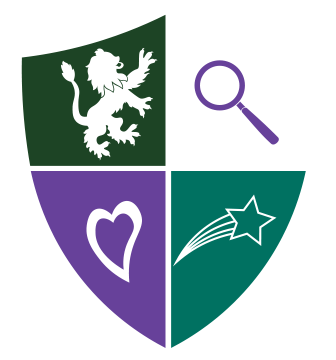E-safety
Keeping your child safe online
Fulbourn Primary School takes the online safety of all our pupils very seriously and staff have undertaken training as part of our safeguarding protocols.
We encourage all parents and carers to use the links below to find out more information about online safety for children.
-
Childnet
Childnet is a non-profit organisation working with others to help make the internet a great and safe place for children.
-
Digizen
The Digizen website provides information for educators, parents, carers, and young people. It is used to strengthen their awareness and understanding of what digital citizenship is and encourages users of technology to be and become responsible DIGItal citiZENS. It shares specific advice and resources on issues such as social networking and cyberbullying and how these relate to and affect their own and other people's online experiences and behaviours.
-
Child Exploitation and Online Protection (CEOP)
A police agency tackling child abuse on the internet. This website includes a unique facility that enables parents and young people to make reports of actual or attempted abuse online.
-
Action for Children
Action for Children supports and speaks for the UK's most vulnerable and neglected children and young people.
-
Department for Education
Safeguarding information
-
Thinkuknow
Thinkuknow is the education programme from NCA-CEOP. It offers age-specific advice for children on using the internet.

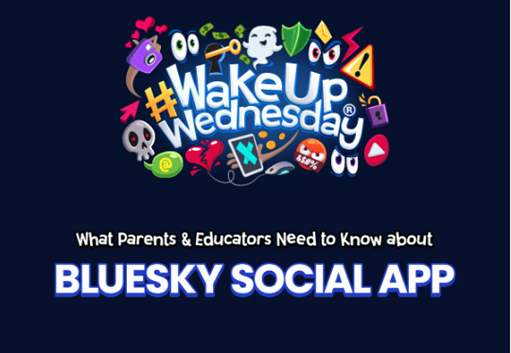
Bluesky social app is a microblogging social media platform that gained popularity after separating from Twitter in 2021. It’s more than doubled its user numbers in the past six months alone, from 14.5 million in October 2024 to 32 million at present. Since accounts must be public, this opens the door to potential trolling, cyberbullying and the spread of misinformation.
We’ve created this free guide – also available in podcast format – offering parents and educators advice and guidance on the tools available to keep children safe while using the popular social media platform Bluesky.
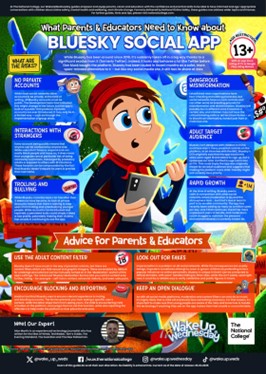

If there are two things that are popular nowadays, it’s Marvel and video games. Marvel Rivals is a new release combining these two into one, letting players take on the role of various superheroes and villains in a competitive multiplayer shooter. At the time of writing, the title has proven immensely successful: with the developer, NetEase, reports that as many as 40 million people are playing the game – many of whom will be children, owing to the game’s PEGI 12 age rating.
While most of Marvel’s content has been family –friendly (and this game has been deemed suitable for children as young as 12), this title does still present numerous potential risks to children and young people. We’ve put together this week’s free guide – also available in podcast format offering parents and educators expert advice on the potential pitfalls of Marvel Rivals and how to protect its younger players.
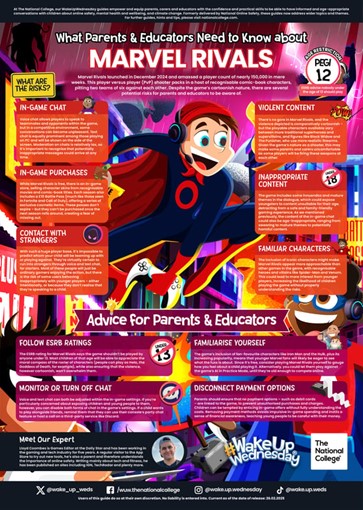
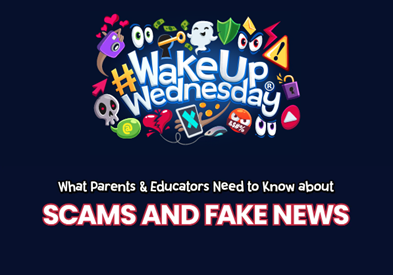
Fake news’ is a widespread issue in the digital world, and it's overwhelmingly likely that both children and adults will be exposed to it online. In fact, a study from the Alan Turing Institute has found that 94% of people in the UK have encountered misinformation on social media and that’s only the ones who were aware of it!
However, while some fake news is shared mistakenly by well-meaning individuals, it’s also shared by scammers and other cyber-criminals to lend legitimacy to their con. While this presents a clear risk to children and young people online, the question remains as to how we can protect them against such tactics. This week’s free guide offers expert advice on the specific ways scammers use misinformation and how to safeguard younger users against
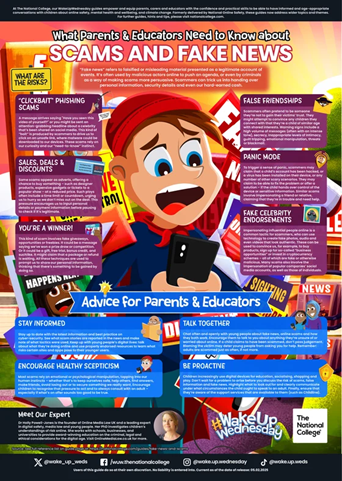
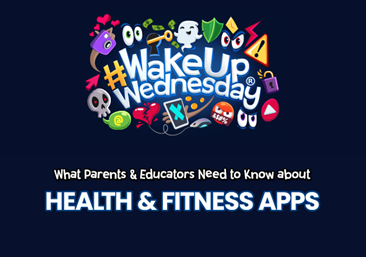
A study entitled The Digital Health Generation has highlighted that more than 70% of young people in the UK, some aged just 8, are using apps and other digital online technologies to track and manage their health. For those of us who might struggle with sticking to a routine or even knowing where to start, physical wellbeing and fitness apps promise to do the heavy lifting for you providing meal plans, exercise routines and more.
However, some of these apps aren't always as safe as they might first appear, and they tend to present a few risks to their users – especially for their underage demographic. That’s why we’ve put together this free guide on safety concerns around physical wellbeing apps, to provide you with expert advice on how to mitigate these risks for young people.


With 22% of its billion-strong userbase being between the ages of 13 and 17, the popularity of TikTok among the younger generation is indisputable. Providing entertainment in the form of a stream of short-form video content while allowing its users to post videos of their own, the app has skyrocketed to prominence over the last few years, becoming a fixture in young people’s digital lives.
Of course, with a platform as popular and gargantuan as TikTok, it can be intimidating trying to figure out how best to safeguard children and young people using the app. That’s why we’re releasing our brand-new guide to TikTok, detailing the main online safety concerns and suggesting strategies to reduce these risks for the app’s younger users.
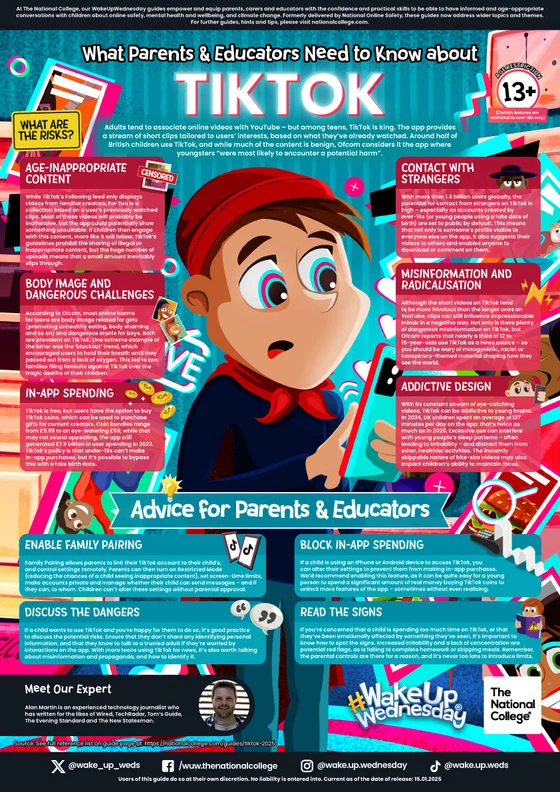
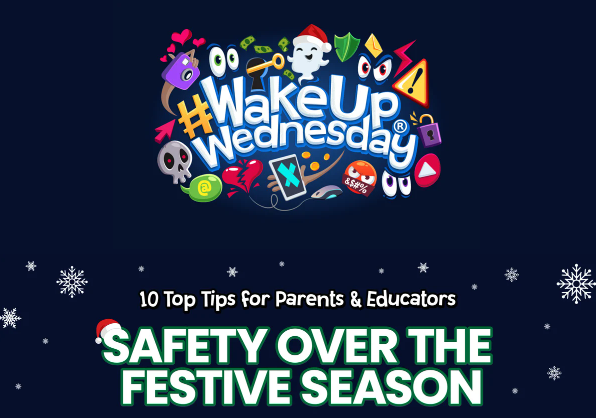
The holiday season is fast approaching! While we hope you’re exciting to kick back, relax, and enjoy some well-earned rest with friends and family, it’s still vitally important that we do all we can to safeguard the children and young people in our care over the festive period.
However, it can be tricky to know what specific steps we can take to ensure our winter break is as calm and risk-free as possible, which is why we’ve put together this week’s free guide. Check out our expert advice on keeping youngsters safe over the festive season.
Click here for more information and for Top Ten Tips for Parents and Educators over the Festive Season
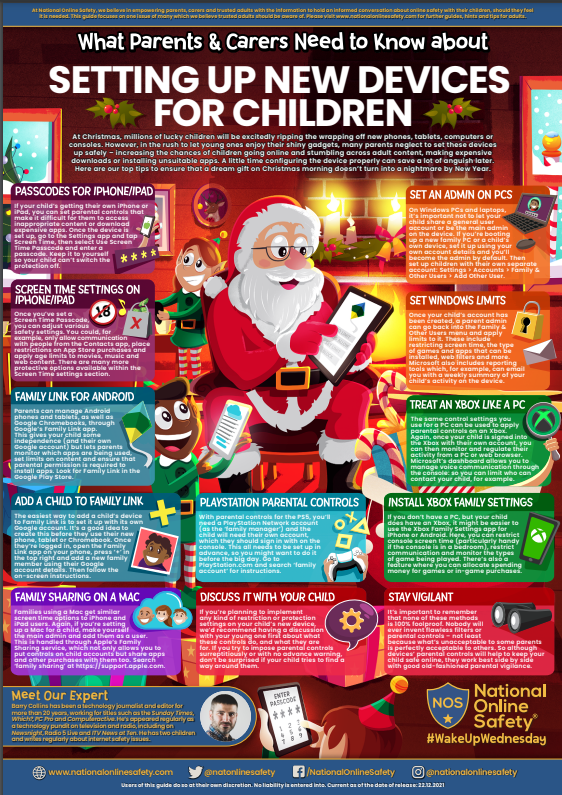
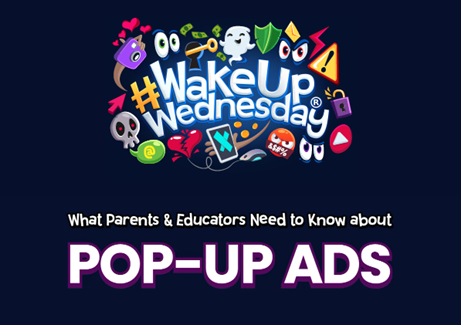
Please click here to read information about the National College's Wake Up Wednesday, which will focus on pop-up ads which appear when free apps are accessed, including those labelled as 'educational'. These include pop-ups associated with deceptive marketing and potential scams.
WhatsApp Guidance
WhatsApp has an age rating of 13+ and if you are allowing your child to have WhatsApp in primary school WE STRONGLY SUGGEST you check your child's phone daily and have very regular and open discussions with them about how to use it safely and kindly. The pastoral team are always available to help with any issues you are having and can be contacted at pastoralteam@fulbourn.cambs.sch.uk
